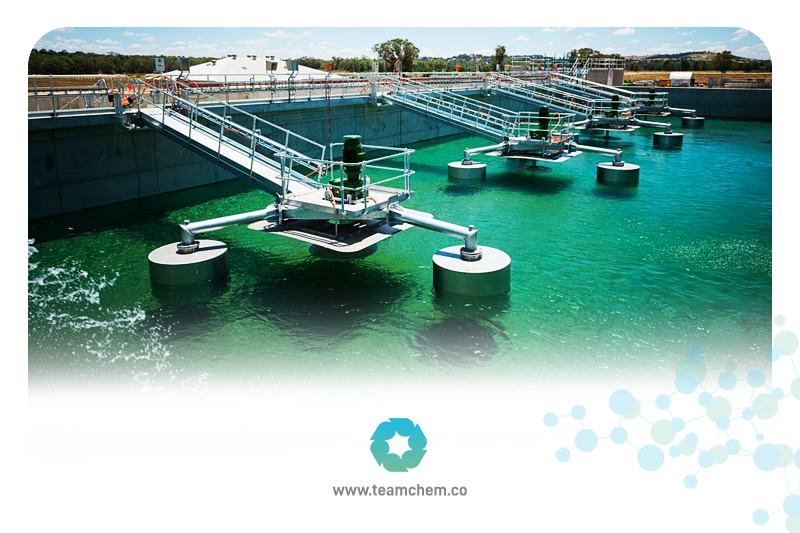Calcium Chloride: The Unsung Hero Transforming Everyday Life
Calcium chloride (CaCl2), a naturally occurring salt, is an unsung hero working behind the scenes to enhance our daily lives in surprising ways. From the crisp crunch of a pickle to the smooth texture of your favorite cheese, or even the clear roads you drive on during winter, calcium chloride plays a crucial role. Available in various forms, including Calcium Chloride 78% and Calcium Chloride 94%, this versatile compound is a key ingredient in numerous applications across industries.
What is Calcium Chloride?
Calcium chloride is an ionic compound composed of calcium and chlorine. Its unique properties, such as being highly hygroscopic (attracting moisture) and exothermic (releasing heat when dissolved in water), make it incredibly useful in various fields. These properties allow it to absorb moisture from the air, lower the freezing point of water, and accelerate chemical reactions, among other functions.
The Many Faces of Calcium Chloride
From keeping our roads safe in winter to ensuring the quality of our food, calcium chloride plays a multitude of roles. It's a key player in de-icing operations, using its ability to melt ice quickly and effectively. In the food industry, it's used to maintain the firmness of canned vegetables like beans and maintain the texture of cheese such as mozzarella. It even finds its way into medical treatments, industrial processes, and more.
A Closer Look At CaCl2
The two most common forms of calcium chloride used in various applications are:
Calcium Chloride 78%: This form is commonly used in de-icing, dust control, and industrial applications.
Calcium Chloride 94%: This more concentrated form is often preferred in oil and gas operations and other specialized industrial uses.
Calcium Chloride: Transforming the Ordinary into Extraordinary
In the following sections, we'll delve deeper into the fascinating world of calcium chloride, exploring its diverse applications in detail. Prepare to be amazed by how this unassuming compound is quietly transforming everyday life in extraordinary ways.
Calcium Chloride in the Food Industry
Calcium chloride, particularly in the forms of Calcium Chloride 78% and Calcium Chloride 94%, plays a crucial and often unnoticed role in the food and beverage industry. It acts as a multi-functional additive that not only enhances the taste and texture of various products but also contributes to their safety and shelf life.
Food Preservation: Keeping Produce Firm & Fresh
One of the primary uses of Calcium Chloride 78% in the food industry is as a firming agent. In canned fruits and vegetables, it helps maintain their texture, preventing them from becoming mushy or soft during storage. This is especially important for products like pickles, tomatoes, and beans, where firmness is a desirable quality.
Dairy Delights: Perfecting Cheese & Milk
In the dairy industry, calcium chloride is a key player. It is added to milk during cheesemaking to promote coagulation and improve the texture of the final product. Additionally, it helps maintain calcium levels in milk, ensuring optimal nutritional value.
Brewing Brilliance: Balancing Minerals for Better Beer
Brewers utilize calcium chloride to adjust the mineral content of their brewing water. This is crucial for achieving the desired flavor profile and ensuring a smooth fermentation process. The right balance of minerals contributes to the overall quality and taste of the beer.
Beyond the Basics: Electrolytes & More
Beyond its role in preservation and texture enhancement, calcium chloride also finds its way into sports drinks and bottled water as an electrolyte. It helps replenish electrolytes lost during physical activity, aiding in hydration and muscle function. Moreover, it is used in pickling and curing processes to enhance flavor and extend the shelf life of various foods.
Calcium Chloride Use for Deicing
Winter's icy grasp can wreak havoc on roads and sidewalks, creating hazardous conditions for drivers and pedestrians alike. This is where calcium chloride steps in as a winter warrior, effectively combating ice and snow and ensuring safer travel.
How Calcium Chloride Works Its Magic on Ice

Calcium chloride (CaCl2), in both its 78% and 94% concentrations, possesses a remarkable ability to lower the freezing point of water. When applied to icy surfaces, it dissolves, releasing heat (exothermic reaction) and disrupting the ice's crystalline structure. This process prevents ice formation and melts existing ice, making roads and walkways safer for everyone.
Calcium Chloride 78% vs. 94%: Choosing the Right Concentration
Calcium Chloride 78%: This form is often preferred for its lower cost and ease of handling. It's effective in milder winter conditions and for pre-treating roads before a snowfall.
Calcium Chloride 94%: With a higher concentration, this form packs a more powerful punch against ice and snow. It's ideal for extreme cold and heavy snowfalls, where faster melting and longer-lasting results are crucial.
Environmental Considerations: A Greener Choice
Compared to traditional rock salt (sodium chloride), calcium chloride offers several environmental advantages. It's less corrosive to vehicles and infrastructure, reducing maintenance costs. Additionally, it's less harmful to plants and soil,making it a more eco-friendly option for deicing.
Superior Performance in Extreme Cold
Calcium chloride's effectiveness extends to extremely low temperatures, where rock salt becomes less effective. This makes it a reliable choice for regions with harsh winters, ensuring that roads and sidewalks remain safe even in the most frigid conditions.
The Essential Role of Calcium Chloride in Oil & Gas Operations
Calcium chloride plays a critical role in the oil and gas industry, particularly in drilling and well completion operations.Its unique properties make it an indispensable component in maintaining the safety, efficiency, and success of these complex processes.
Calcium Chloride Uses in Drilling Mud
Drilling mud, also known as drilling fluid, is a vital component in drilling operations. It serves multiple functions,including:
Pressure Control: Drilling mud helps control the pressure within the wellbore, preventing blowouts and ensuring safe drilling conditions.
Cutting Removal: The mud carries rock cuttings (the debris created during drilling) to the surface, keeping the wellbore clean.
Cooling and Lubrication: The mud helps cool and lubricate the drill bit and drilling string, reducing friction and wear.
Calcium chloride is often added to drilling mud to enhance its performance in several ways:
Density Control: By increasing the density of the mud, calcium chloride helps to prevent formation fluids from entering the wellbore, reducing the risk of blowouts.
Hydrate Inhibition: In cold environments, calcium chloride helps prevent the formation of gas hydrates, ice-like crystals that can clog pipelines and disrupt operations. Calcium Chloride 94%, with its higher concentration, is particularly effective in this role.
Fluid Loss Control: Calcium chloride helps reduce fluid loss from the mud into permeable formations, maintaining the desired mud properties and minimizing damage to the reservoir.
Other Applications in Oil & Gas
In addition to drilling mud, calcium chloride is used in various other aspects of oil and gas operations:
Completion Fluids: Calcium chloride is added to completion fluids, which are used to prepare the well for production after drilling. It helps to clean the wellbore, control pressure, and protect the reservoir.
Workover Operations: Workover operations involve interventions in existing wells to maintain or enhance production. Calcium chloride can be used in workover fluids for similar purposes as in completion fluids.

De-icing: In cold climates, Calcium Chloride 78% is often used to de-ice equipment and prevent ice formation on offshore platforms.
Calcium Chloride: Industrial Powerhouse and Everyday Essential
Calcium chloride's versatility extends far beyond food and roads, playing a crucial role in numerous industrial processes and everyday applications.
Wastewater Treatment: Purifying Our Water

Calcium chloride acts as a flocculant in wastewater treatment, helping to clump together suspended particles and remove impurities. This process improves water clarity and quality, making it safe for discharge or reuse.
Agriculture: Nourishing Crops with Calcium

Calcium is an essential nutrient for plant growth, and calcium chloride serves as a convenient and effective fertilizer. It helps address calcium deficiencies in soil, promoting healthy root development, stronger stems, and improved crop yields.
Medical Applications: Supporting Health
Calcium chloride plays a vital role in medical settings. It is used to treat hypocalcemia, a condition characterized by low calcium levels in the blood. It is also administered during cardiac resuscitation to help restore normal heart rhythms.
Other Applications: From Desiccants to Tire Ballast
Calcium chloride's unique properties make it useful in a wide range of other applications:
Desiccants: Its hygroscopic nature allows it to absorb moisture, making it an effective desiccant for keeping products dry during storage and transport.
Fire Extinguishers: Calcium chloride is a component in some fire extinguishers, helping to suppress flames and cool burning materials.
Tire Ballast: It can be used as a liquid ballast in tires, providing additional weight for improved traction and stability, particularly in agricultural and construction vehicles.
6. Safety & Environmental Considerations: Handling Calcium Chloride Responsibly
Handling and Storage Precautions:
Hygroscopic Nature: Calcium chloride is highly hygroscopic, meaning it readily absorbs moisture from the air.Proper storage in airtight containers is crucial to prevent clumping and maintain product quality.
Skin and Eye Irritation: Direct contact with calcium chloride can cause skin irritation or chemical burns. Always wear appropriate personal protective equipment (PPE), including gloves and goggles, when handling the substance.
Inhalation Hazard: Inhaling calcium chloride dust can irritate the respiratory system. Ensure adequate ventilation when working with the compound, and use a respirator if necessary.
Heat Generation: Calcium chloride releases heat when dissolved in water (exothermic reaction). Exercise caution when mixing to avoid burns or damage to containers.
Environmental Impact and Mitigation:
Impact on Aquatic Life: High concentrations of calcium chloride can be harmful to aquatic life. Avoid direct discharge into waterways and follow local regulations for disposal.
Impact on Vegetation: Excessive application on vegetation can lead to dehydration and damage. Use calcium chloride judiciously and follow recommended application rates.
Chloride Runoff: Chloride ions from calcium chloride can contribute to soil and water salinity. Implement best management practices to minimize runoff and protect the environment.
Responsible Use and Disposal:
Follow Manufacturer Guidelines: Always adhere to the manufacturer's instructions for handling, storage, and disposal of calcium chloride.
Proper Disposal: Dispose of unused calcium chloride and contaminated materials according to local regulations.
Spill Containment: Have spill kits readily available and know the appropriate procedures for containing and cleaning up calcium chloride spills.
Environmental Monitoring: Regularly monitor the environmental impact of calcium chloride use and implement corrective measures if necessary.
Balancing Benefits and Risks:
While calcium chloride offers numerous benefits, it's essential to use it responsibly to minimize potential environmental and safety risks. By following proper handling and disposal practices, we can harness its power while protecting our health and the environment.
Partner with Team Chemicals for All Your Calcium Chloride Needs
TEAMChem is a leading global supplier of premium calcium chloride products, including Calcium Chloride 78% and Calcium Chloride 94%, tailored to meet the diverse needs of industries worldwide. We pride ourselves on:
Unmatched Quality: Our calcium chloride undergoes rigorous quality control to ensure exceptional purity and performance.
Diverse Applications: Whether you need calcium chloride for deicing, dust control, industrial processes, or oil and gas operations, we have the right solution for you.
Expert Support: Our team of experienced professionals is dedicated to providing technical expertise and personalized guidance to ensure your success.
Reliable Supply: We maintain a robust supply chain to deliver your calcium chloride promptly and efficiently, wherever you are.
Sustainability Focus: We are committed to sustainable practices and offer environmentally responsible solutions.
Choose TEAM Chemicals for Quality Calcium Chloride Solutions
When it comes to calcium chloride, TEAMChem is your trusted partner. Contact us today to learn more about our products and services and discover how we can help you optimize your operations and achieve your goals.